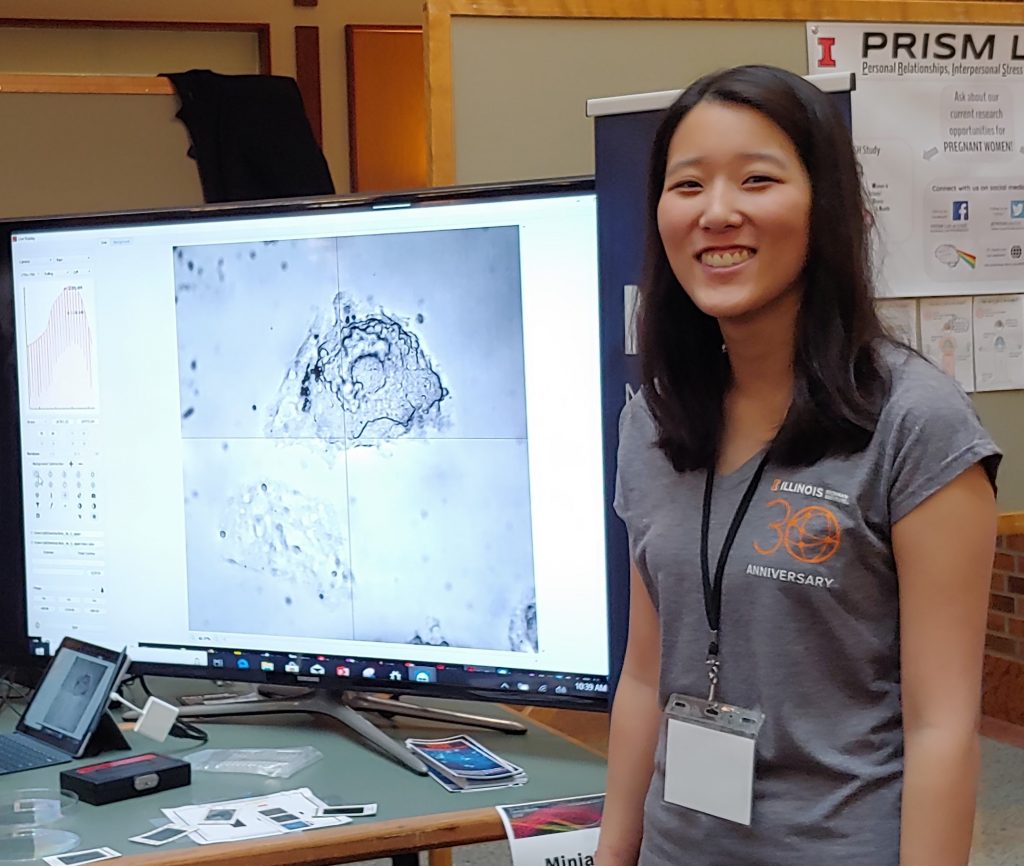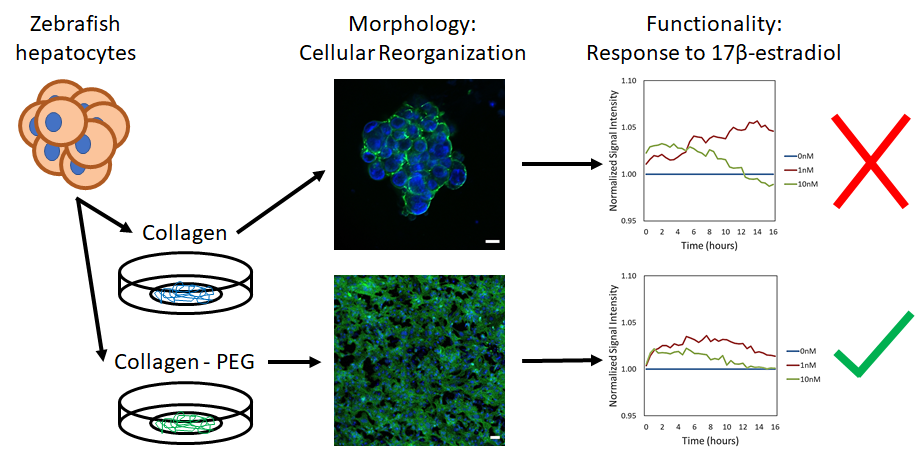 Kathryn Sullivan joined the program as a second-year graduate student in January 2018 and is expected to graduate with a PhD in bioengineering in 2021. She completed undergraduate degrees in materials science & engineering and bioengineering at Carnegie Mellon University. Her research topics are organoid self-organization and functionality in response to hydrogel properties. She is co-advised by Hyunjoon Kong and Martha Gillette.
Kathryn Sullivan joined the program as a second-year graduate student in January 2018 and is expected to graduate with a PhD in bioengineering in 2021. She completed undergraduate degrees in materials science & engineering and bioengineering at Carnegie Mellon University. Her research topics are organoid self-organization and functionality in response to hydrogel properties. She is co-advised by Hyunjoon Kong and Martha Gillette.
Sullivan presented her research on “Matrix softness – mediated 3D zebrafish hepatocyte modulates response to endocrine disrupting chemicals” at the Biomedical Engineering Society (BMES) annual meeting in October 2020. She also presented “Cancer cell migration using collagen – polyethylene glycol hydrogel matrix modulation” at the American Institute of Chemical Engineers’ (AIChE) annual meeting in November 2019 and “Zebrafish liver organoid organization influenced by matrix stiffness” at the Miniature Brain Machinery (MBM) Retreat in September 2018. She has recently published a first-authored paper in ACS Environmental Science and Technology in addition to co-authored papers including Nature Communications.

Sullivan is on the MBM Student Leadership Council and has participated in trainee activities such as the MBM Retreats in 2020 and 2018, Frontiers in MBM lectures, and the Summer Journal Club reading and discussion meetings. She recently won an award for her lightning talk at the 2020 MBM retreat. She assisted with the MBM booth at the Beckman Open House in March 2019 as well as the Market EBICS booth in 2015. She also took a leadership role in the Girls’ Adventures in Mathematics, Engineering, and Science (GAMES) Camp in June 2015. She has served as a graduate student mentor (2017-present), an undergraduate research mentor (2018-2020), and an REU student mentor (2018, 2019).
Sullivan recently received a fellowship from the Mavis Future Faculty Fellows Academy in the Grainger College of Engineering for 2020 to 2021. She has completed Professional Skills for Careers in Biosciences certificate program at the Institute for Genomic Biology from 2018 to 2019. She also earned the Illinois Graduate Mentoring Certificate in 2019, as well as all semesters of the Special Topics in MBM course plus coursework in tissue engineering, integrative neuroscience, design & use of biomaterials, professionalism in bioengineering, and professional skills for careers in biosciences. In addition, she attended the Science Communication Workshop led by Sandra Tsing Loh at Beckman Institute for Advanced Science and Technology in April 2018.
Research Highlights:

Three-dimensional hydrogels are used to mimic the in vivo tissue microenvironment in in vitro cell culture platforms. However, culturing primary cells or tissue explants in vitro result in a major challenge with de-differentiation of the cells. This results in a loss of tissue morphology and function. By tuning the elastic modulus of a collagen-polyethylene glycol hydrogel, the self-organization of cells can be modulated into functional tissues. Using this system, the modulation of the malignancy of human hepatocarcinoma cells and formation into implantable tumors has been studied. Also, it was found that Zebrafish hepatocytes were more sensitized to endocrine disrupting chemicals when cultured in this system. Overall, the development of this in vitro hydrogel system has facilitated the transition from live animal studies to in vitro models.

